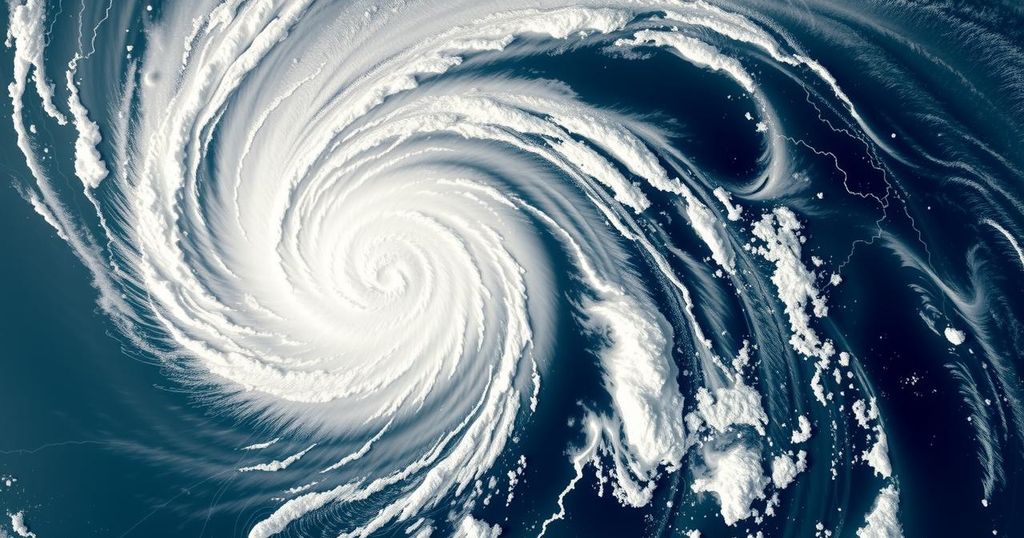Cyclone Chido is advancing towards Comoros, Madagascar, Mayotte, and Mozambique, bringing heavy rain and fierce winds. Precautionary measures include school closures in Comoros and evacuations in Madagascar. Authorities in Mozambique are on high alert as millions may be impacted, highlighting growing concerns regarding climate change’s role in intensifying cyclones.
Cyclone Chido, a formidable tropical storm, is advancing towards the islands of Comoros, Madagascar, Mayotte, and the African mainland, particularly Mozambique. This atmospheric disturbance is anticipated to unleash powerful winds and heavy precipitation, thereby posing a considerable threat to these regions. Authorities in Comoros have proactively ordered the closure of schools as the cyclone is expected to impact the islands early Saturday.
The French territory of Mayotte remains vigilant, with the French national weather service implementing a red alert in response to the incoming storm. Mozambique has also declared a red alert for its northern provinces, Cabo Delgado and Nampula, which may see over 2 million individuals affected. Forecasts from the Mozambique National Meteorological Institute predict wind speeds reaching up to 200 kph (124 mph) upon Cyclone Chido’s arrival on the mainland.
Madagascar is preparing for the cyclone’s encroachment, issuing warnings to residents to adopt safety measures. Evacuations are being conducted in the northern region of Diana, expected to bear the brunt of the cyclone’s impact. Since the onset of the situation, authorities have been distributing food and emergency supplies to affected areas.
In addition, the French government is mobilizing aid to assist Mayotte in addressing potential aftermath. Emergency personnel and equipment are being deployed to facilitate rescue and recovery operations. Experts on climate assert that storms in this region are increasingly intensifying due to climate change influences, raising concerns about possible flooding, landslides, and the spread of waterborne diseases, including cholera, dengue fever, and malaria.
As cyclone season commences, residents are strongly advised to remain informed and equally prepared to secure their well-being amid this impending natural calamity.
Cyclones are intense storm systems that can result in significant destruction, especially in tropical regions. The occurrence of Cyclone Chido highlights a growing concern regarding the increasing frequency and severity of such storms, exacerbated by climate change. The regions of Comoros, Madagascar, Mayotte, and Mozambique have historically faced challenges during cyclone season, necessitating robust preparedness and response strategies to mitigate the impact on local populations.
In summary, Cyclone Chido poses a substantial threat to the islands of Comoros, Madagascar, Mayotte, and the northern areas of Mozambique. With red alerts declared, authorities are actively initiating precautionary measures such as school closures and evacuations to safeguard residents. As climate change contributes to the increasing severity of storms, it is imperative for communities to remain vigilant and adequately prepared for potential disasters.
Original Source: www.inkl.com







